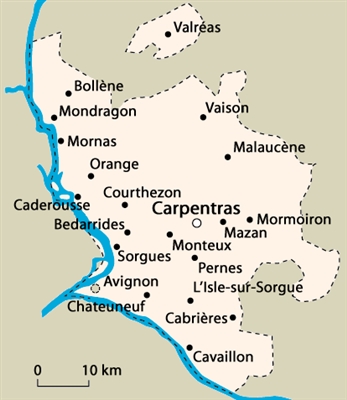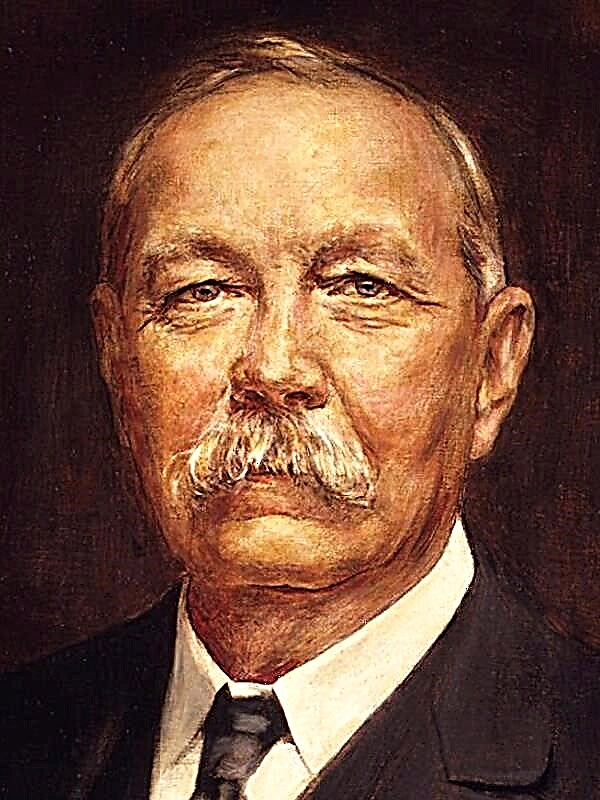Share
Pin
Tweet
Send
Share
Send
In the texts to prepare for the exam, we have repeatedly encountered the problem of egoism in its various manifestations, each of which is a heading in our list. To them are selected literary arguments from foreign and domestic books. All of them are available for download in the form of a table, a link at the end of the collection.
The Consequences of Selfishness
- In the modern world, the tendency of egoism is gaining momentum. However, it should not be argued that this problem did not exist before. One of the classic examples may be Larra - the hero of the legend from the story M. Gorky "The Old Woman Izergil". He is the son of an eagle and an earthly woman, because of which he considers himself smarter, stronger and better than others. His behavior is marked by disrespect for others and, in particular, to the older generation. Its behavior reaches its climax when Larra kills the daughter of one of the elders only because the girl refused to satisfy his whims. He is immediately punished and expelled. After the lapse of time, the hero isolated from society begins to experience unbearable loneliness. Larra returns to the people, but it's too late, and they do not take him back. Since then, he wanders a lonely shadow on the earth, because God punished the proud woman with eternal life in exile.
- IN Jack London's short story “Far Away” selfishness equates to instinct. It tells of Weatherby and Cutfert, who by chance remained alone in the North. They went to distant lands to look for gold and are forced to wait out the harsh winter together in the old hut. After the lapse of time, real natural egoism begins to manifest in them. Ultimately, the heroes lose the struggle for survival, yielding to their base desires. They kill each other in a fierce struggle for a cup of sugar.
Selfishness as a disease
- Two centuries ago, the great classics described the problem of egoism. Evgeny Onegin is the main character of the novel of the same name written by A.S. Pushkin, is a prominent representative of people with "Russian spleen." He is not interested in the opinions of others, he misses everything that is happening around. Because of his cowardice and irresponsibility, the poet Lensky dies, and his insensibility offends the feelings of a young noblewoman. Of course, he is not hopeless; at the end of the novel, Eugene realizes his love for Tatyana. However, it is too late. And the girl rejects him, remaining faithful to her husband. As a result, he condemns himself to suffering until the end of his days. Even his desire to become lovers married and respected by everyone Tatyana betrays his selfish motives, which he can not get rid of even in love.
- Selfishness is like a certain disease, it destroys a person from the inside and does not allow him to adequately interact with other people. Grigory Pechorin, who is the central character in novel by M.Yu. Lermontova "Hero of our time", constantly pushes away from itself dear to the heart of people. Pechorin easily understands human nature, and this skill plays a trick on him. Remembering himself higher and smarter than others, Gregory thereby isolates himself from society. The hero often plays with people, provokes them to different actions. One of these cases ends with the death of his friend, the other - the tragic death of his girlfriend. The man understands this, regrets, but can not in any way throw off the shackles of the disease.
Self-humiliation of the egoist
- A vivid example of a selfish person is a hero novel F.M. Dostoevsky's "Crime and Punishment", Rodion Raskolnikov. He, like many of his acquaintances, lives poorly and blames everything around him. At one point, he decides to kill an old woman, who is an interest-bearing woman, in order to take her money and give it to the poor citizens, freeing them from debt obligations to Alyona Ivanovna. The hero does not think about the immorality of his actions. On the contrary, he is sure that this is for a good purpose. But in reality, for the sake of his whim only, he wants to test himself and check to what type of people he can attribute himself: to “trembling creatures” or to “those who have a right”. Still, having violated one of the commandments due to selfish desire, the hero condemns himself to loneliness and mental anguish. Pride blinds him, and only Sonya Marmeladova helps Raskolnikov again embark on the true path. Without her help, he would surely have gone mad with the pangs of conscience.
- Despite the fact that sometimes people cross all moral and legal boundaries in order to achieve their selfish goals, we tend to experience the torment of conscience. So one of the heroes of the poem A.N. Nekrasov "Who needs to live well in Russia" realized his wrong. The peasant Ermil Girin uses his post of headman to free his brother from recruiting duties. Instead, he writes down another villager. Realizing that he ruined the life of a person and his family, he regrets his selfish act. His guilt is so great that he is even ready to commit suicide. However, he repents to the people in time and accepts his sin, trying to make amends.
Female selfishness
- Selfish people are always not only what they have. They always want to have something more. Material wealth for them is a way of self-affirmation. Fairy tale heroine A.S. Pushkin "About the Fisherman and the Fish" not happy with my life in poverty. When her husband catches a "goldfish", a woman needs only a new trough. However, each time she wants more, and ultimately the old woman wants to become a sea mistress. Easy prey and selfish morals overshadow the old woman's mind, because of which, in the end, she loses everything and again finds herself with a broken trough. Magical power punishes her for the fact that the lady in the pursuit of the satisfaction of pride did not at all value either her husband or the benefits that she received.
- Women are often called selfish, as they like to spend a lot of time caring for themselves. However, real egoism is much worse. Heroine epic novels L.N. Tolstoy "War and Peace" Helen Kuragina proves to the reader that true egoists are characterized by heartlessness. The princess was a beautiful girl and had many admirers, however, she chooses the ugly and awkward gentleman, Pierre Bezukhov, as her husband. However, she does this not out of love. She needs his money. Literally immediately after the wedding, she gets a lover. Over time, her impudence reaches incredible proportions. Helen, with the onset of war, when you need to worry about the fate of the homeland, only thinks about how to get rid of her husband and marry again one of the fans.
The ruthlessness of selfishness
- Lack of sympathy, pity, compassion - these are the features that are characteristic of egoists. No wonder they say that such people are ready for the most terrible things for their whim. For example, in the story of I. Turgenev “Mumu” the lady takes away from his servant the only joy in his life. Once Gerasim picks up a homeless puppy, grows him, takes care. However, the puppy annoyed the lady, and she ordered the hero to drown him. With bitterness in his heart, Gerasim obeys the order. Just because of the simple whim of a selfish person, he loses his only friend and ruins the life of the animal.
- Obeying selfishness, people lose control of themselves and make irreparable mistakes. For example, Hermann in the work of A. S. Pushkin "Queen of Spades" learns about the secret of three cards, which guarantees a win in any card game. The young man decides to get it at all costs, and for the sake of this, he pretends to be in love with a pupil of the only guardian of secrets - the elderly countess. Making his way to the house, he threatens the old woman with murder, and she really dies. After that, she comes to Hermann in a dream and gives a secret in exchange for an oath to marry her pupil. The hero does not keep his promise and wins victory after victory. But having put all the con, he miserably loses the decisive game. The ambitious young man went crazy, having paid for his atrocities. But before that, he poisoned the life of an innocent girl who believed his words.
Share
Pin
Tweet
Send
Share
Send












